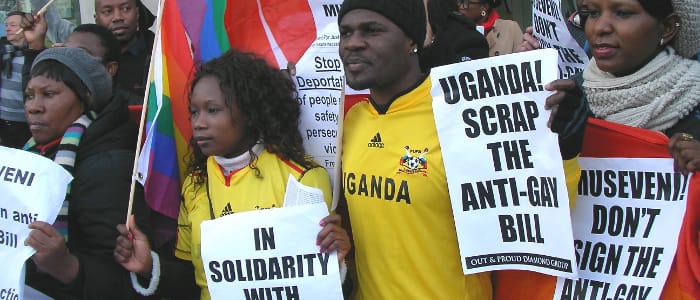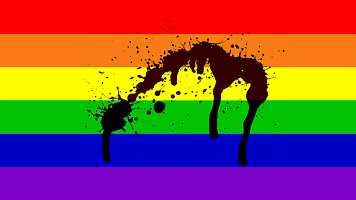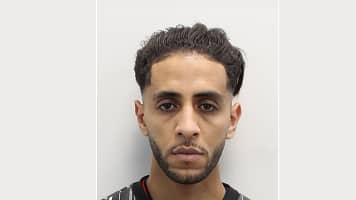Fifty, mostly African, campaigners rallied outside the Uganda High Commission in London yesterday (8 January) to urge the Ugandan president to not sign the Anti-Homosexuality Bill that was passed by the Ugandan parliament on 20 December 2013.
Fifty, mostly African, campaigners rallied outside the Uganda High Commission in London yesterday (8 January) to urge the Ugandan president to not sign the Anti-Homosexuality Bill that was passed by the Ugandan parliament on 20 December 2013.
See this report on the MPs vote: bit.ly/1cxoqro
The protesters chanted: “Gay rights in Uganda. Gay rights in Africa. Gay rights everywhere” and “2-4-6-8. Museveni, don’t hesitate. 3-5-7-9. Stop the anti-gay bill, don’t sign.”
Yesterday’s protest was jointly organised by the African LGBTI Out & Proud Diamond Group and Peter Tatchell Foundation.
“The Anti-Homosexuality Bill, often referred to as the ‘Jail the Gays’ Bill, extends the current penalty of life imprisonment for anal intercourse all other same-sex acts, even mere kissing and touching. It introduces jail terms of five to seven years for promoting homosexuality, including advocating LGBTI rights and assisting LGBTI people or events,” said Peter Tatchell, Director of the human rights organisation, the Peter Tatchell Foundation.

“The Bill violates the non-discrimination provisions of the Ugandan constitution, Commonwealth Charter and the African Charter on Human & People’s Rights, to which Uganda is a signatory. It does not conform to the human rights check list agreed by Ugandan parliamentarians.
“The Bill was passed without a quorum and it was not on the parliament’s order of business. It is invalid,” he said.
Wednesday’s protest had four demands.
1. We urge President Yoweri Museveni to not sign the bill
2. We call on the Ugandan parliament to repeal the current criminalisation of homosexuality under sections 145, 146 and 148 of the penal code.
3. We urge the Members of Parliament to vote against the bill if it is brought back to parliament.
4. We ask Ugandan and international political, cultural, religious and business leaders to speak out against the Bill and to defend the human rights of LGBTI Ugandans.
“The British government and world leaders should speak out and demand immediate action from the Ugandan government to end the criminalisation of homosexuality,” said Richard Banadda, coordinator of the protest.
“This legislation is scaring away foreign investors, expatriates, tourists and foreign donors, who dislike the bigoted homophobic atmosphere. Some are fearful that they could be blackmailed and prosecuted under this Bill and under the existing draconian sections145, 146 and 148 of the Ugandan penal code. Disinvestment would affect innocent Ugandans economically, said Mr Banadda.
“President Museveni prides himself as a liberator and a protector of all Ugandans. This bill neither liberates nor protects any individual,” said Edwin Sesange, Director of the African LGBTI organisation Out & Proud Diamond Group.
George Dhabangi, a Trustee of the African LGBTI Out and Proud Diamond Group, added: “The Ugandan government should stop meddling with what two consenting adults do in private, as long as they don’t interfere with the rights and freedoms of other people. It is none of the business of the state.”
Peter Tatchell said:
“The criminalisation of homosexuality is contrary to the Ugandan constitution and to the human rights obligations that Uganda has signed and pledged to uphold. This Bill is creating an atmosphere of hate and violence, including mob beatings of suspected LGBT people. Much of this bigotry is fuelled by anti-gay Christian fundamentalists who are supported by right-wing evangelical pastors in the US.
“This bill is in some respects even more draconian than the extreme homophobic laws of countries like Saudi Arabia and Iran.
“The anti-gay legislation is part of a wider attack on civil society, including the harassment of opposition activists, detention without trial, torture, extra-judicial killings, restrictions on the media and the suppression of protests and strikes. LGBT and straight Ugandans have a common interest in defending democracy and human rights. We stand with them in solidarity,” concluded Mr Tatchell.




